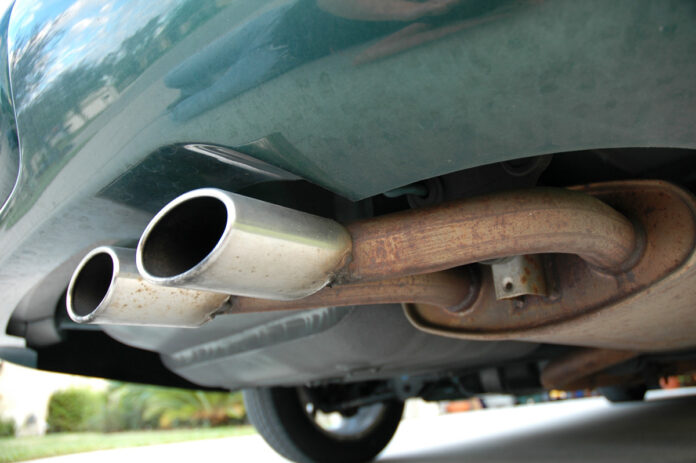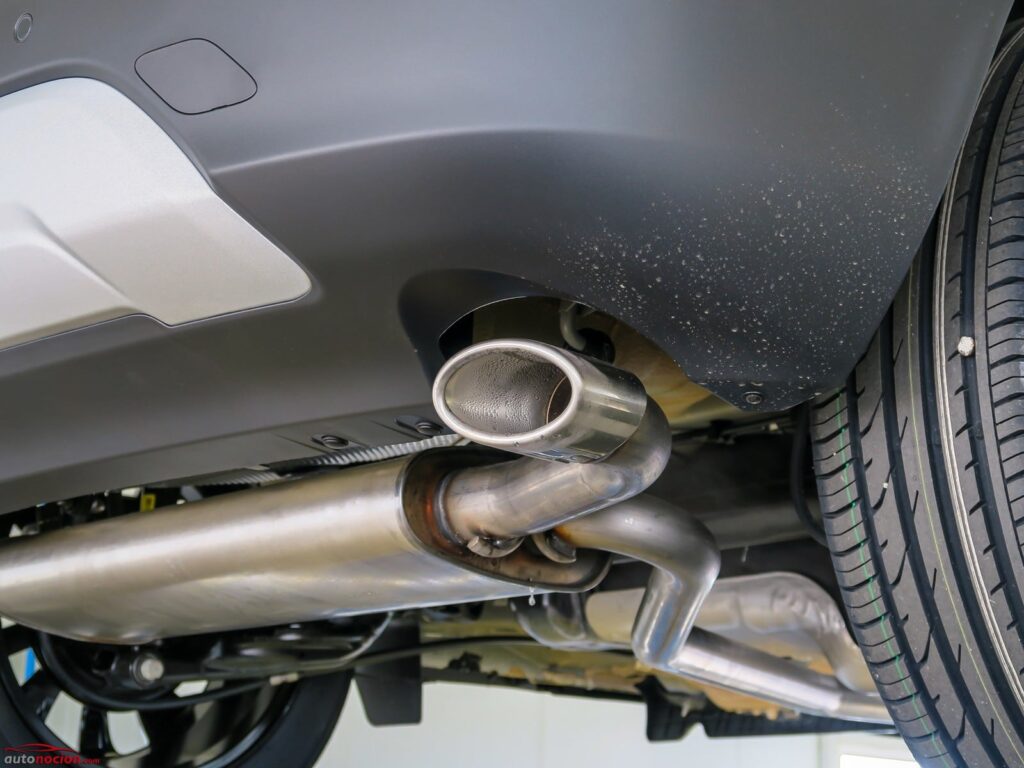
You want to know how much platinum does a catalyst have? In this article we tell you its value, what it is for and some of the most frequently asked questions.
car catalytic converter

The catalytic converter is one of the most essential parts that a car has. Every car has a working catalytic converter. It is a device that is part of the exhaust system of the car.
This small device fulfills the function of rReduce the pollution generated by expelling exhaust gases to the outside. In this way, the negative impact on the environment produced by motor cars is reduced.
- It may interest you: Symptoms of a damaged catalytic converter
How much platinum is in a catalytic converter?
catalytic converter, aka catalyst, is one of the most mandatory elements within the exhaust system of a car. It is responsible for controlling tailpipe emissions, reducing their toxicity.
However, do you know how much platinum is in a car catalyst? A device with these characteristics contains approximately between 3 and 7 grams (0.106 to 0.247 ounces) of platinum.
But the amount of platinum in a catalytic converter can vary depending on the make, model and year of your car. There are vehicles that contain a small amount of platinum, while other models can have double the usual amount.
A clear example is the Toyota Prius (2016). The catalytic converter in this car contains a lot of platinum. and has extremely low emissions. But it is not the only car like this. There are also other models such as the Ford F250, Ferrari F430, Lamborghini Aventador that contain a large amount of platinum.
How much is platinum worth in a catalytic converter?
surely you will wonder whatWhy are catalysts stolen??, The more platinum the catalyst has, the higher its market value will be. An average catalytic converter can contain approximately 3 to 7 grams of platinum.
A catalyst with that amount of platinum it costs in the market between $100 to $237. Remember that this type of material, such as platinum, is more valuable compared to gold and silver.
Since the year 2022, the value of platinum is $997 per ounce and $32.18 per gram. However, these prices may vary from time to time. What is clear is that it is a precious metal and coveted by thieves.
Currently there are many cars that contain a high amount of platinum and precious metals, becoming ideal targets for criminals. It is always recommended to protect the car against catalyst theft, and in case of any incident, report it to the police authorities.
- It may interest you: How much does a used catalytic converter cost?
Why do catalytic converters use platinum?
Platinum is a highly expensive material, and many users wonder why catalysts use such highly valued precious metals. The truth is, there are a lot of reasons why CATs use platinum.

One of the main reasons has to do with the quality and resistance of platinum. This element is good as an oxidation catalyst. A standard catalytic converter has two chambers through which harmful exhaust gases flow.
In the first chamber we find the harmful gas reduction catalyst containing platinum + rhodium. This reduction catalyst splits the noxious gas nitrogen oxide (NO) into harmless nitrogen and oxygen particles.
For his part, in the second chamber, platinum and palladium act as oxidation catalyst. This second chamber is responsible for harmful substances such as carbon monoxide (CO) and unburned hydrocarbons.
Its function is transform carbon monoxide into gases that are less harmful as carbon dioxide (CO2) or nitrogen (N) and water vapor (H2O) which are then expelled through the exhaust pipe.
These are some of the advantages of platinum on other catalysts:
- Its high melting point (higher than gold and silver) is critical in high-temperature situations. It is used in some spark plugs for the same reason.
- Unlike silver and copper, platinum is not completely or irreversibly poisoned when it comes into contact with metal sulfates or sulfites.
- You can recycle platinum efficiently.
It may interest you how to clean a caralizer without removing it
Frequent questions
Then, some of the most frequently asked questions that users have about platinum in car catalysts.
1: What are Platinum Group Metals (PGMs)?
The PGMs are made up of six metallic elements They are chemically and structurally similar. Platinum, palladium, rhodium, iridium, ruthenium, and osmium are classified as platinum group metals.
In general, this type of metals belonging to the platinum group, used in different demanding applicationssince they have a greater durability, their life cycles are more extensive and they can speed up a chemical reaction.
Car catalysts use these metals to eliminate harmful emissions such as nitrogen oxidecarbon monoxide or hydrocarbon from unburned fuel.
2. Can I recycle my catalytic converter?
The answer is yes. There is the option of recover nearly all of the pure platinum in your converter’s catalyst parts catalytic. It’s no secret to anyone that recycling is cheaper than mineral production, and is an excellent way to conserve precious metals from used converters.
This platinum recycling process is known as “foundry”. During this process, the scrap catalytic converter is heated to a very high temperature, separating the valuable pieces of metal from the other materials. The derived metals are then reused for new converters or other items.
3. How can I protect my catalytic converter from theft?
Replacing a catalytic converter can be very expensive, depending on the model. For this reason it is important to take into account a series of recommendations to prevent catalyst theft. Pay attention to these precautions:
- Try to park the car inside a closed garage
- Install catalytic converter guards and alarms
- Make reselling your stolen catalytic converter more difficult by painting and etching your information on your cat.
You can see more tips in How do I prevent my catalytic converter from being stolen?
4. What are diesel catalytic converters?
There are at least three types of catalytic converters for cars. A similarity between all of them is that they use the precious metal platinum to prevent harmful polluting substances from leaving the gases through the exhaust pipe.
One of the types of catalysts is the diesel catalytic converter. It is located closer to the engine.; unlike gasoline-powered automotive catalytic converters, which are closer to the end of your exhaust system.

